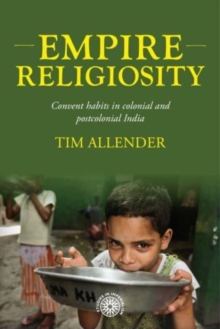
Britannia's Children : Reading Colonialism Through Children's Books and Magazines PDF
by Kathryn Castle
Part of the Studies in Imperialism series
Description
Many European countries, their imperial territories, and rapidly Europeanising imitators like Japan, established a powerful zone of intellectual, ideological and moral convergence in the projection of state power and collective objectives to children.
This book is an introduction to the 'imperial' images of the Indian, African and Chinese, created for the youth of Britain through their history textbooks and popular periodicals.
Focusing on materials produced for children, by textbook historians and the popular press, it provides a study of both the socialization of the young and the source of race perceptions in 20th-century British society.
Against a backdrop of promoting the 'wonderful development of the Anglo-Saxon race', textbook historians approached British India as the primary example of imperial achievement.
Chinese characters continued to feature in the periodicals in a variety of situations, set both in China and the wider world.
Africa was a favoured setting for adventure in the years between the world wars, and African characters of long standing retained their popularity.
While much of the 'improving' material began to disappear, reflecting the move toward a youth-centred culture, Indian, African and Chinese characters still played an important role in stories and features.
The images of race continued into the inter-war years.
The book shows how society secures the rising generation in the beliefs of the parent society, and how the myths of race and nationality became an integral part of Britain's own process of self identification. -- .
Information
-
Download - Immediately Available
- Format:PDF
- Pages:228 pages
- Publisher:Manchester University Press
- Publication Date:01/03/2017
- Category:
- ISBN:9781526123633
Information
-
Download - Immediately Available
- Format:PDF
- Pages:228 pages
- Publisher:Manchester University Press
- Publication Date:01/03/2017
- Category:
- ISBN:9781526123633










